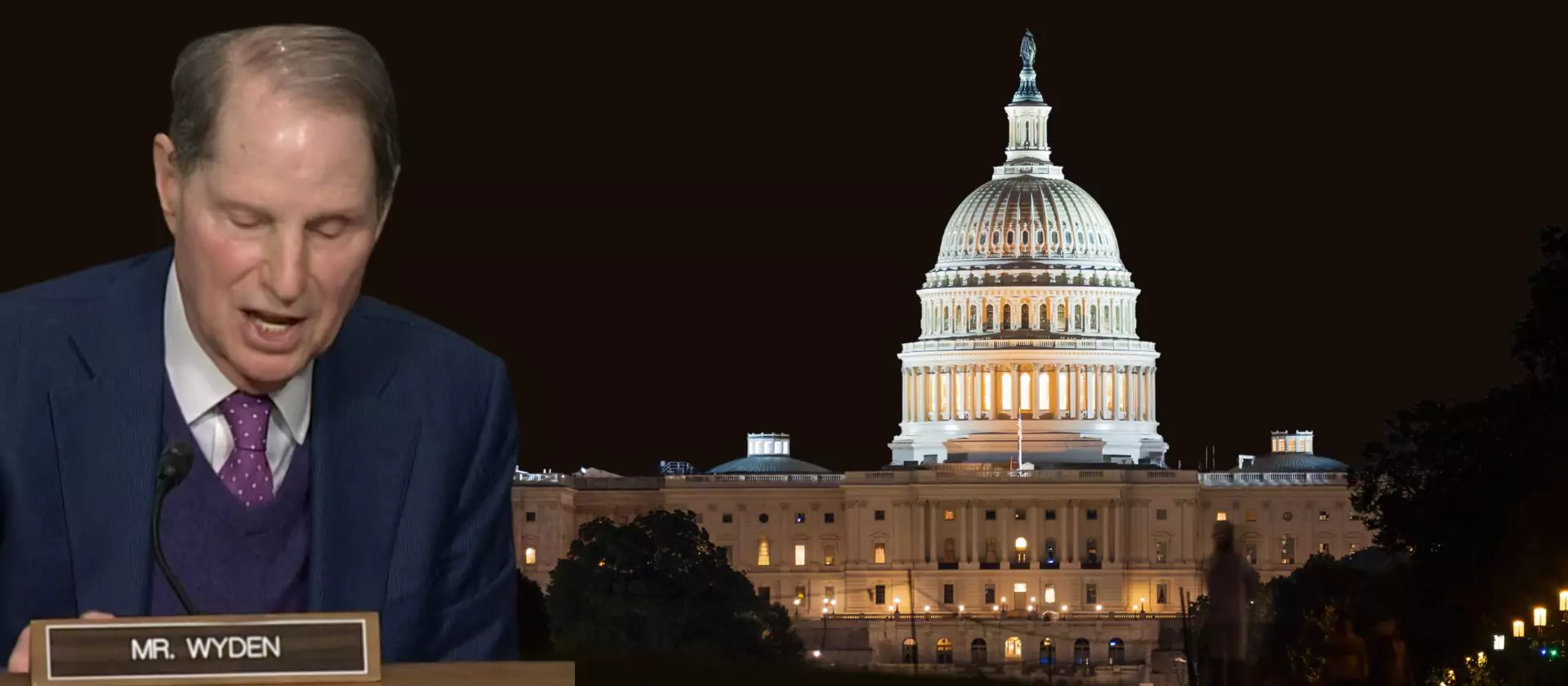Working families across Oregon are struggling to afford the rising cost of living. Despite wage gains for workers in recent years, many still struggle to afford the rising costs of housing, food, transportation, and child care. Indeed, more than two in five Oregonians lack the resources needed to maintain a basic survival budget.[i] A proven way of helping families make ends meet is by strengthening the Earned Income Tax Credit (EITC), a refundable tax credit that boosts the incomes of working families.
House Bill 2958 would strengthen Oregon’s EITC by doubling the state’s match of the federal credit, delivering more than $60 million directly to nearly 230,000 Oregon working families each year.[ii] It also extends the credit to workers arbitrarily excluded from the program because of their age. Enacting HB 2958 would strengthen the economic security of nearly a quarter-million Oregon families, with families of color and families in rural parts of the state experiencing the greatest benefits.[iii] It would also boost the long-term well-being of children who benefit.
The Earned Income Tax Credit bolsters economic security
The EITC is the largest anti-poverty program in the Oregon tax code, helping nearly 230,000 working families struggling to make ends meet every year. The EITC is a refundable tax credit, meaning if the value of a family’s credit exceeds the amount of taxes they owe, the difference is returned to them in the form of a tax refund. The refundable nature of the EITC makes it an efficient means of putting dollars into the pockets of working families struggling to get by.
The amount of EITC a family is eligible for varies based on their income, marital status, and how many children they have. For low-income families with multiple children, the federal EITC can be worth nearly $8,000 when they file their taxes.[iv] Oregon’s EITC functions as a percentage of a filer’s federal credit. The state offers a nine percent match of the federal for most filers, except for families with children under age 3 who receive a 12 percent match.[v] The Oregon EITC delivers more than $50 million to working families each year.[vi]
The broad benefits of the EITC are well documented. The federal EITC helps lift about 68,000 Oregonians, including 34,000 children, out of poverty each year.[vii] For children, the EITC has a lasting impact. A substantial body of research shows that tax credits such as the EITC improve child health, boost school performance, promote college enrollment, and increase earnings when children become adults.[viii]
The benefits of increases to the EITC extend beyond the families who claim the credit themselves. Eligible families tend to spend their EITC refunds quickly at local businesses, as they make purchases to meet their basic needs. This spending generates more economic activity. Researchers estimate that each federal EITC dollar results in $1.40 to $1.58 in activity in the economy, as local businesses use EITC dollars to purchase goods and services and pay employees, and employees spend their earnings.[ix]
HB 2958 strengthens Oregon’s Earned Income Tax Credit
Lawmakers have an opportunity to improve Oregon’s EITC in the 2025 legislative session. In Oregon, tax credits typically expire every six years, unless lawmakers choose to renew them. Without legislative action, Oregon’s EITC is set to expire in the current budget period. Oregon lawmakers ought to renew the state EITC, given that it is an efficient and proven means of helping working families afford the rising cost of living.
The expiration of the credit creates an opportunity to strengthen the EITC to make it work even better for Oregonians. House Bill 2958 would renew and strengthen the Oregon EITC by:
- Doubling the state match for a family’s federal EITC. HB 2958 increases the Oregon EITC to 20 percent of the federal credit for most families, and 25 percent for families with children under the age of three.[x] On average, families with children would see their EITC boosted by more than $400.[xi] Families with children under age 3 would see their credit increased by about $500 on average.
- Expanding eligibility to all working adults. No adult should be excluded from the EITC because of their age. However, under current law, only childless adults between the ages of 25 and 65 are eligible. Working adults outside of those age limits also have bills to pay, and there is no sensible policy reason for their exclusion. HB 2958 expands eligibility to all childless adults, regardless of their age.
- Improving the design of the credit. The recently created Oregon Kids’ Credit included two best practices in tax credit design that HB 2958 would apply to the Oregon EITC. First, it would protect the EITC from garnishment, so that the resources from the credit flow to families to help them meet their basic needs instead of private lenders. Second, it would allow for the credit to be paid in quarterly payments to better help families meet their regular expenses, as soon as the federal government allows states to do so without harming eligibility for certain federal benefits.[xii]
Consider a family with three children ages two, six, and 10 who earns $30,000 per year. Under current law, this family is eligible for an Oregon EITC worth $840. HB 2958 would increase that family’s EITC by more than $900, money that can go further towards helping them pay their rent or afford quality child care.
HB 2958 is designed to efficiently steer cash to families struggling the most with the rising cost of living. Nearly nine of every 10 dollars of the total EITC increase would flow to Oregonians in the bottom 40 percent.[xiii] About half of the total increase would flow to the bottom 20 percent of Oregonians.
Strengthening the state EITC would help ease long standing economic disparities by race.[xiv] More than one in three Latino Oregonians and one in four Black Oregonians would benefit from a stronger EITC. About one in six white Oregonians would benefit from the increased EITC under HB 2958.
HB 2958 would strengthen the EITC for families in all corners of the state, especially rural counties. Nearly 18,000 families in Douglas County would benefit, and together they would get more than $2.1 million each year. In Klamath County, more than $1.5 million would flow to nearly 13,000 families. Indeed, the federal EITC disproportionately benefits rural communities, and boosting Oregon’s EITC would help strengthen those effects.[xv] In addition to the federal EITC bringing new dollars into local economies, a stronger Oregon EITC helps rural families support local businesses when they spend their money locally on essentials.
Conclusion
The Earned Income Tax Credit is a proven and efficient means of helping working families afford their basic needs. Oregon lawmakers must act to renew the state credit in the 2025 legislative session. Moreover, they should use the occasion of its renewal to strengthen the credit, so that it does even more to help Oregon families meet their basic needs.
Appendix A: HB 2958 Impacts by Oregon Senate District
Appendix B: HB 2958 Impacts by Oregon House District
[i] United for ALICE, ALICE in the Crosscurrents: An Update on Financial Hardship in Oregon, 2024.
[ii] OCPP analysis of data provided by the Oregon Legislative Revenue Office and Center on Budget and Policy Priorities.
[iii] Center for Rural Affairs, Impact of Earned Income Tax Credit on Rural People.
[iv] Internal Revenue Service, Earned income and Earned Income Tax Credit (EITC) tables, accessed on March 3, 2025.
[v] State of Oregon, Tax Expenditure Report 2025-27, p. 132.
[vi] Ibid.
[vii] Center on Budget and Public Policy analysis of CPS public use files from the U.S. Census Bureau, with corrections to underreporting of benefits from TRIM (Urban Institute/HHS).
[viii] Chuck Marr, et al., The EITC and Child Tax Credit Promote Work, Reduce Poverty, and Support Children’s Development, Research Finds, Center on Budget and Policy Priorities, October 1, 2015.
[ix] Antonio Avalos, Sean Alley, The Economic Impact of the Earned Income Tax Credit (EITC) in California, The California Journal of Politics & Policy, 2010, Vol. 2, Issue 1. Also, Targeted Messages Why me? EITC and Other Refundable Credits, IRS.
[x] 2025 Oregon Legislative Session, House Bill 2958.
[xi] OCPP analysis of data provided by Center on Budget and Policy Priorities.
[xii] Under current law, periodic payments of state level tax credits would be considered income for determination of a person’s eligibility for certain federal benefits. HB 2958 mirrors trigger language included in the Oregon Kids’ Credit law stating the Oregon Department of Revenue shall begin quarterly payments of the credit after the federal government permits states to pay tax credits regularly without impacts to federal benefits eligibility.
[xiii] OCPP analysis of data provided by the Institute on Taxation and Economic Policy.
[xiv] OCPP analysis of data provided by Center on Budget and Policy Priorities.
[xv] Center for Rural Affairs, Impact of Earned Income Tax Credit on Rural People.





